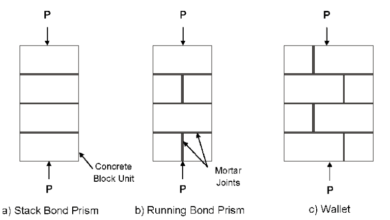The Impact of Market Trends on Investment Property Management

In the dynamic realm of real estate, market trends play a pivotal role in shaping investment property management strategies. Understanding these trends not only allows property managers to adapt effectively but also positions them to capitalize on emerging opportunities. This comprehensive blog explores the key market trends affecting investment property management, their implications, benefits, and addresses frequently asked questions to provide a holistic understanding of this crucial topic.
1. Economic Factors
Economic conditions, including inflation rates, interest rates, and overall economic growth, are fundamental drivers of market trends in real estate. During periods of economic expansion, disposable income increases, fostering higher demand for rental properties. Conversely, economic downturns may lead to reduced rental demand as tenants consolidate households or seek more affordable housing options.
Impact on Property Management:
- Rent Adjustments: Property managers can adjust rental prices in response to economic fluctuations to attract tenants and maintain occupancy levels.
- Financial Planning: Understanding economic trends enables proactive financial planning, ensuring stable cash flow and mitigating financial risks.
Benefits:
- Optimized Rental Income: Adapting rental rates based on economic conditions can maximize rental income while remaining competitive in the market.
- Risk Mitigation: Strategic financial planning helps property managers navigate economic uncertainties and maintain financial stability.
2. Housing Market Trends
Trends within the housing market, such as shifts in homeownership rates and housing supply, significantly influence investment property management strategies. Changes in homeownership rates often correlate with fluctuations in rental demand, impacting occupancy rates and rental pricing dynamics.
Impact on Property Management:
- Market Analysis: Property managers conduct thorough market analysis to identify emerging trends and adjust property management strategies accordingly.
- Property Marketing: Tailoring marketing strategies to align with housing market trends enhances property visibility and attracts prospective tenants.
Benefits:
- Increased Occupancy Rates: Aligning property management strategies with housing market trends enhances occupancy rates by appealing to evolving tenant preferences.
- Enhanced Property Value: Strategic positioning based on housing market trends can increase property value and attractiveness to potential investors.
3. Demographic Shifts
Demographic changes, such as population growth, age distribution, and migration patterns, exert significant influence on the rental market landscape. Understanding demographic trends enables property managers to tailor property amenities and services to meet the diverse needs of tenants.
Impact on Property Management:
- Tenant Engagement: Addressing demographic shifts facilitates targeted tenant engagement strategies, fostering tenant satisfaction and retention.
- Property Customization: Adapting property features and amenities to cater to specific demographic groups enhances property appeal and market competitiveness.
Benefits:
- Improved Tenant Satisfaction: Customizing property offerings based on demographic trends enhances tenant satisfaction and promotes long-term tenant relationships.
- Market Differentiation: Aligning property management practices with demographic shifts distinguishes properties in the market, attracting a broader tenant base.
4. Technological Advancements
The integration of technology in property management has transformed operational efficiencies and tenant experiences. Innovations such as property management software, smart home technologies, and digital communication platforms optimize property management processes and enhance tenant engagement.
Impact on Property Management:
- Operational Efficiency: Automated systems streamline property management tasks, reducing operational costs and improving overall efficiency.
- Tenant Experience: Offering tech-savvy amenities enhances tenant satisfaction and loyalty, fostering positive tenant relationships.
Benefits:
- Cost Savings: Adopting technology-driven solutions reduces administrative burdens and lowers operational expenses, maximizing profitability.
- Tenant Retention: Enhanced tenant experiences through technological advancements increase tenant retention rates and minimize turnover costs.
5. Regulatory Changes
Changes in housing regulations and policies, including rent control measures and tenant protection laws, directly impact property management practices and tenant-landlord relationships. Staying informed about regulatory updates ensures compliance and mitigates legal risks associated with property management.
Impact on Property Management:
- Legal Compliance: Proactively adapting property management practices to comply with regulatory changes mitigates legal risks and ensures tenant satisfaction.
- Policy Adaptation: Modifying lease agreements and tenant screening processes aligns property management practices with evolving regulatory requirements.
Benefits:
- Risk Management: Compliance with regulatory changes minimizes legal liabilities and safeguards property investments against potential fines and litigation.
- Tenant Trust: Transparent adherence to regulatory standards enhances tenant trust and fosters positive landlord-tenant relationships.
6. Sustainability Trends
The growing emphasis on sustainability and environmental responsibility has reshaped property management practices. Integrating green building initiatives, energy-efficient technologies, and sustainable practices not only reduces operating costs but also attracts environmentally-conscious tenants.
Impact on Property Management:
- Environmental Impact: Implementing sustainable practices reduces carbon footprints and promotes eco-friendly property management.
- Cost Efficiency: Energy-efficient upgrades lower utility expenses, enhancing property profitability and long-term sustainability.
Benefits:
- Market Differentiation: Embracing sustainability trends distinguishes properties in the market, appealing to eco-conscious tenants and investors.
- Financial Savings: Reduced operational costs through sustainable practices increase property profitability and asset value over time.
7. Short-Term Rental Market
The rise of short-term rental platforms, such as Airbnb and VRBO, has introduced new revenue opportunities and operational challenges for property managers. Optimizing short-term rental strategies requires proactive management and adherence to local regulations governing vacation rentals.
Impact on Property Management:
- Revenue Diversification: Leveraging short-term rental opportunities diversifies income streams and maximizes property profitability.
- Operational Management: Efficient turnover processes and guest management systems are essential for successful short-term rental operations.
Benefits:
- Income Maximization: Capitalizing on short-term rental demand generates higher rental yields and offsets seasonal occupancy fluctuations.
- Market Flexibility: Offering short-term rental options enhances property versatility and responsiveness to dynamic market demands.
Frequently Asked Questions (FAQs)
How do economic factors impact rental property management?
Economic conditions, such as inflation and interest rates, influence rental demand and pricing. Property managers adjust rents based on economic cycles to optimize income and maintain occupancy levels.
What role do demographic shifts play in property management?
Demographic changes, like population growth and aging trends, shape tenant preferences and property demand. Property managers customize amenities and services to meet the needs of diverse tenant demographics.
How can technology improve property management practices?
Technology enhances operational efficiency through automated systems for rent collection, maintenance, and tenant communication. It also enhances tenant satisfaction with smart home amenities and digital services.
Why is sustainability important in property management?
Sustainable practices reduce operational costs, attract environmentally-conscious tenants, and enhance property value. They also align with regulatory trends and market preferences for eco-friendly properties.
What are the benefits of short-term rentals for property managers?
Short-term rentals offer revenue diversification, higher rental yields, and flexibility in property usage. However, they require efficient management of turnovers and compliance with local regulations.
Read also: Top Benefits of Effective Investment Property Management
Conclusion
Market trends exert profound influence on investment property management, shaping strategic decisions and operational outcomes. By proactively monitoring economic conditions, housing market dynamics, demographic shifts, technological advancements, regulatory changes, sustainability trends, and short-term rental opportunities, property managers can optimize performance, mitigate risks, and enhance tenant satisfaction. Embracing these trends not only positions property investments for sustainable growth but also cultivates resilience in navigating the complexities of the evolving real estate market landscape. Strategic adaptation to market trends is crucial for achieving long-term success and maximizing the value of investment properties in an increasingly competitive market environment.





